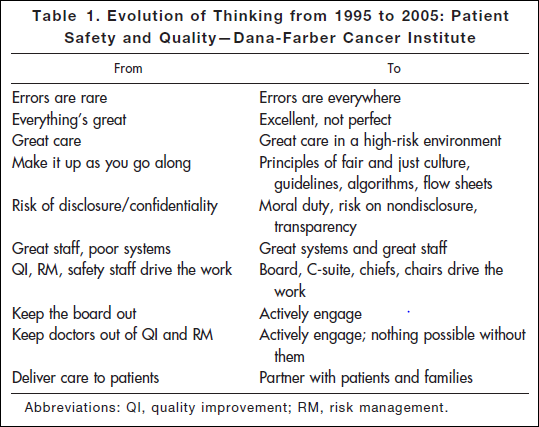February 22nd, 2011 by PJSkerrett in Opinion, Research
No Comments »

 Media channels are a-twitter with the news that zinc can beat the common cold. CBS News, the LA Times, the Huffington Post, and hundreds of others are treating a quiet research report as big news that will have a life-changing effect. After reading the report and doing a little digging into the dark side of zinc, I’m not rushing out to stock up on zinc lozenges or syrup.
Media channels are a-twitter with the news that zinc can beat the common cold. CBS News, the LA Times, the Huffington Post, and hundreds of others are treating a quiet research report as big news that will have a life-changing effect. After reading the report and doing a little digging into the dark side of zinc, I’m not rushing out to stock up on zinc lozenges or syrup.
The latest hubbub about zinc was sparked by a report from the Cochrane Collaboration. This global network of scientists, patients, and others evaluates the evidence on hundreds of different treatments. In the latest review, on zinc for the common cold, researchers Meenu Singh and Rashmi R. Das pooled the results of 13 studies that tested zinc for treating colds. By their analysis, taking zinc within 24 hours of first noticing the signs of a cold could shorten the cold by one day. They also found that taking zinc made colds a bit less severe.
Sounds good so far. But instead of saying, “Hey, take zinc if you have a cold,” the researchers concluded like this:
“People taking zinc lozenges (not syrup or tablet form) are more likely to experience adverse events, including bad taste and nausea. As there are no studies in participants in whom common cold symptoms might be troublesome (for example, those with underlying chronic illness, immunodeficiency, asthma, etc.), the use of zinc currently cannot be recommended for them. Given the variability in the populations studied (no studies from low- or middle-income countries), dose, formulation and duration of zinc used in the included studies, more research is needed to address these variabilities and determine the optimal duration of treatment as well as the dosage and formulations of zinc that will produce clinical benefits without increasing adverse effects [bold is mine], before making a general recommendation for zinc in treatment of the common cold.”
Not exactly a ringing endorsement. Read more »
*This blog post was originally published at Harvard Health Blog*
February 2nd, 2011 by Mary Knudson in Health Tips, Opinion
No Comments »

 I confess to loving Campbell’s tomato bisque soup. I mix it with 1 percent-fat milk and it’s hot and delicious and comforting, but one of the worst food choices I could make because one cup contains more sodium than I should have in a day. Knowing this, I have already relegated it to an occasional treat. But by the end of this blog post I will do more.
I confess to loving Campbell’s tomato bisque soup. I mix it with 1 percent-fat milk and it’s hot and delicious and comforting, but one of the worst food choices I could make because one cup contains more sodium than I should have in a day. Knowing this, I have already relegated it to an occasional treat. But by the end of this blog post I will do more.
We are overdosing on sodium and it is killing us. We need to cut the sodium we eat daily by more than half. The guidelines keep coming. The U.S. government has handed out dietary guidelines telling Americans who are over 50, all African Americans, people with high blood pressure, diabetes, or chronic kidney disease to have no more than 1,500 milligrams (mg) — or two thirds of a teaspoon — of sodium daily. That’s the majority of us — 69 percent. Five years ago the government said that this group would benefit from the lower sodium and now it made this its recommendation. The other 31 percent of the country can have up to 2,300 mg a day, say the guidelines from the U.S. Department of Agriculture (USDA) and the U.S. Department of Health and Human Services (HHS).
Or should they? The American Heart Association (AHA) recommends that all Americans lower sodium to less than 1,500 mg a day. Excessive sodium, mostly found in salt, is bad for us because it causes high blood pressure which often leads to heart disease, stroke, and kidney disease and can also cause gastric problems. People with heart failure are taught to restrict salt because water follows salt into the blood and causes swelling of the ankles, legs, and abdomen and lung congestion that makes it difficult to breathe.
I saw one recommendation by an individual on the Internet to just drink a lot of water to flush the sodium out of your body rather than worry about eating foods that have less sodium. BAD idea, especially for people with heart problems who need to restrict fluids to help prevent fluid accumulation in their bodies. The salt will draw the water to it.
But cutting our salt consumption by half is quite a tall order for an individual consumer because Americans have been conditioned from childhood to love salt and we on average consume 3,436 mg — nearly one and a half teaspoons — a day. Sodium is pervasive in our food supply. We get most of our sodium from processed foods and restaurant and takeout food, sometime in unexpected places. Read more »
*This blog post was originally published at HeartSense*
January 21st, 2011 by DavedeBronkart in Health Tips, Opinion
No Comments »

There are several stages in becoming an empowered, engaged, activated patient — a capable, responsible partner in getting good care for yourself, your family, whoever you’re caring for. One ingredient is to know what to expect, so you can tell when things seem right and when they don’t.
Researching a project today, I came across an article* published in 2006: “Key Learning from the Dana-Farber Cancer Institute’s 10-Year Patient Safety Journey.” This table shows the attitude you’ll find in an organization that has realized the challenges of medicine and is dealing with them realistically:

“Errors are everywhere.” “Great care in a high-risk environment.” What kind of attitude is that? It’s accurate.
This work began after the death of Boston Globe health columnist Betsy Lehman. Long-time Bostonians will recall that she was killed in 1994 by an accidental overdose of chemo at Dana-Farber. It shocked us to realize that a savvy patient like her, in one of the best places in the world, could be killed by such an accident. But she was.
Five years later the Institute of Medicine’s report “To Err is Human” documented that such errors are in fact common — 44,000 to 98,000 a year. It hasn’t gotten better: Last November the U.S. Inspector General released new findings that 15,000 Medicare patients are killed in U.S. hospitals every month. That’s one every three minutes. Read more »
*This blog post was originally published at e-Patients.net*
November 30th, 2010 by PeterWehrwein in Better Health Network, Health Tips, News, Research
1 Comment »

 Vitamin D has been talked about as the vitamin — the one that might help fend off everything from cancer to heart disease to autoimmune disorders, if only we were to get enough of it.
Vitamin D has been talked about as the vitamin — the one that might help fend off everything from cancer to heart disease to autoimmune disorders, if only we were to get enough of it.
“Whoa!” is the message from a committee of experts assembled by the Institute of Medicine (IOM) to update recommendations for vitamin D (and for calcium).
The IOM committee’s report, released this morning, says evidence for many of the health claims for vitamin D is “inconsistent and/or conflicting or did not demonstrate causality.” The exception is the vitamin’s well-documented (and noncontroversial) benefits on bone growth and maintenance.
The IOM panel’s report also says most North Americans (Canadians as well as Americans) have more than enough vitamin D in their blood to achieve the desired effect on bone. The committee said a blood level of 20 nanograms per milliliter (ng/mL) is sufficient for most people.
The panel set 600 International Units (IU) as the recommended daily intake for children and for adults ages 19 to 70. People ages 71 and older are supposed to get an additional 200 IU, or 800 IU a day.
That’s a fairly sizable increase over the previous recommendations of 200 IU per day through age 50, 400 IU for people ages 51 to 70, and 600 IU for people ages 71 and older. Read more »
*This blog post was originally published at Harvard Health Blog*
October 25th, 2010 by RyanDuBosar in Better Health Network, Health Policy, News, Research
No Comments »

New Jersey’s state health department is considering a rule that would allow nurse anesthetists to work without a doctor’s supervision, as long as there’s a plan to reach one in case of an emergency. New Jersey would join the 30 states that allow nurse anesthetists to work without direct supervision.
On the other end of the country, a California court upheld the state’s decision to opt out of a Medicare requirement that doctors be present while a nurse anesthetist works in order to be reimbursed. The Centers for Medicare and Medicaid Services have allowed states to opt out of that requirement since 2001.
Since then, there has been no evidence of increased inpatient deaths or complications, researchers reported in the August 2010 issue of Health Affairs. Earlier this month, the Institute of Medicine reported that nurses should have a larger role in medical care, including anesthesiology.
*This blog post was originally published at ACP Internist*
Media channels are a-twitter with the news that zinc can beat the common cold. CBS News, the LA Times, the Huffington Post, and hundreds of others are treating a quiet research report as big news that will have a life-changing effect. After reading the report and doing a little digging into the dark side of zinc, I’m not rushing out to stock up on zinc lozenges or syrup.


















